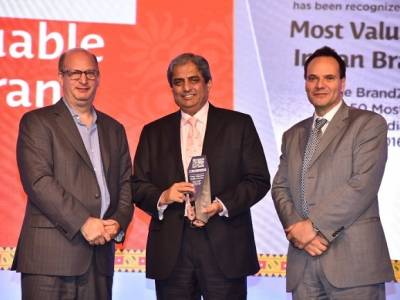Kantar Millward Brown launches a study on the impact of Cab Aggregators
With the meteoric rise of cab aggregators &radio cabs and these services trickling down into tier II cities as well, Kantar Millward Brown conducts an environment scan of the auto sector to predominantly understand the impact of these services on the industry.
As one of the fastest urbanizing economy and a burgeoning middle class with strong purchasing power, topped with a mammoth population base, India is on the world map. The country is witnessing an increased emphasis on infrastructure and a rising demand for discretionary items such as durable goods, automobiles, consumer finance and more.
This study comes at an opportune time where auto manufacturers/ brands and cab service providers get a bird’s eye view of the market dynamics and consumer psyche which prepares them better to fight competition.
Both population growth and expansion of annual disposable income it is projected that India will see 9 million new light vehicle sales in India in 2020. However, certain inherent challenges have been plaguing the auto industry. Inconsistency in policies–future of diesel cars, gradual progression seen towards alternate fuel and EV to recent ban on higher CC and increasing price of fuel.
Most significantly, the rise of radio cabs and aggregators along with increased transactions and rides has led to them emerging an alternative means of transport. The study states, 72 % of car intenders have delayed their decision to purchase a car due to this reason. 88% of the potential consumers state that using cab aggregator is cheaper than car while 86% state that the former is more convenient.
Click here for more Related News.
The rise of Radio cabs has also resulted in the personal car usage going down. 73% consumers state that distance travelled in the self-owned car has come down leading to a decline in the servicing frequency of the car for about 65% of them. 73% also state that cost of servicing the car has reduced.
Anand Parameswaran, Executive Vice President at Kantar Millward Brown says- ‘The cab aggregator services seem to be turning the automotive category from an aspirational one to a commoditised one. A category that used to be more about status seems to be shifting towards convenience due to the benefits that these aggregator services provide. The benefits propel the consumers to choose them over their own personal vehicles. Manufacturers no longer can focus on functional benefits to create demand, aspiration and status of owning a car and driving it will lead to higher usage’
With respect to benefits that consumers look for; comfort and convenience lead the way at 59%. Most consumers like the idea of being driven around which frees up their time to do other things. Consumers also speak about the lessened stress of driving in traffic and parking hassles, which almost seem like a thing of the past with the aggregator service in market. 66% of the consumers also feel that aggregator cabs have better service (of which 71% are owners) than regular cabs; making them more comfortable to sit in for long distances as well. The numbers show that these services are impacting not only existing vehicle owners, but also intenders of personal vehicles.
The study also deep dives into discerning customer preferences among the cab aggregators and traces the path to making such choices. The user friendliness of the booking App leads the way with 62% consumers opting for the service that has a cleaner, uncluttered and overall a more user-friendly App. Easy availability of the cab comes close with 56% respondents opting for the same.
Payment mode flexibility (cash, wallet, credit card etc) and on time arrival are the other key driving factors for the selection of an aggregator. 54% of the consumers vouch for these. Other factors which drive selection are well maintained and clean cabs, better drivers and regular promotions & discounts.
On the downside however, unavailability followed by surge pricing are the most important reasons to not book a cab. More than half (52%) of the riders in metro towns hesitate to book due to unavailability. Waiting time is more of a hindrance in metros (44%) compared to non-metro (26%). As high as 31% respondents shy away during surge/peak pricing as do 40% of intenders.
Summarising the study, Anand says- ‘It seems consumers have found an alternative to driving on their own with the emergence of aggregator cabs. With clogged roads, difficulty in finding parking spaces, the consumer is seeking convenience over pleasure of driving. Owning a Passenger Vehicle is still an aspiration for majority of Indians hence getting reflected in the robust sales for the fiscal year ended March 31, 2018. (FY18). Initial indication seems to suggest a greater impact on usage leading to a drop-in servicing and maintenance. Manufacturers are moving a lot more towards connected cars and better features to make the drive even more comfortable than earlier. The consumer currently is happy to opt for both (Personal car and Cab Aggregator). It will be interesting to see if this equilibrium lasts long?’
Covering, a robust sample size of 1000 plus users, the study delves into key markets like Delhi, Mumbai, Bangalore and tier II cities like Nagpur, Jaipur & Coimbatore. The respondentshail from SECAboth males/females and within the age group of 25-40. All the respondents are either car owners or intenders, planning to purchase a vehicle in the next 6 months and/or users of aggregator services or not intending to purchase a vehicle and are wholly dependent on cab services.









Share
Facebook
YouTube
Tweet
Twitter
LinkedIn